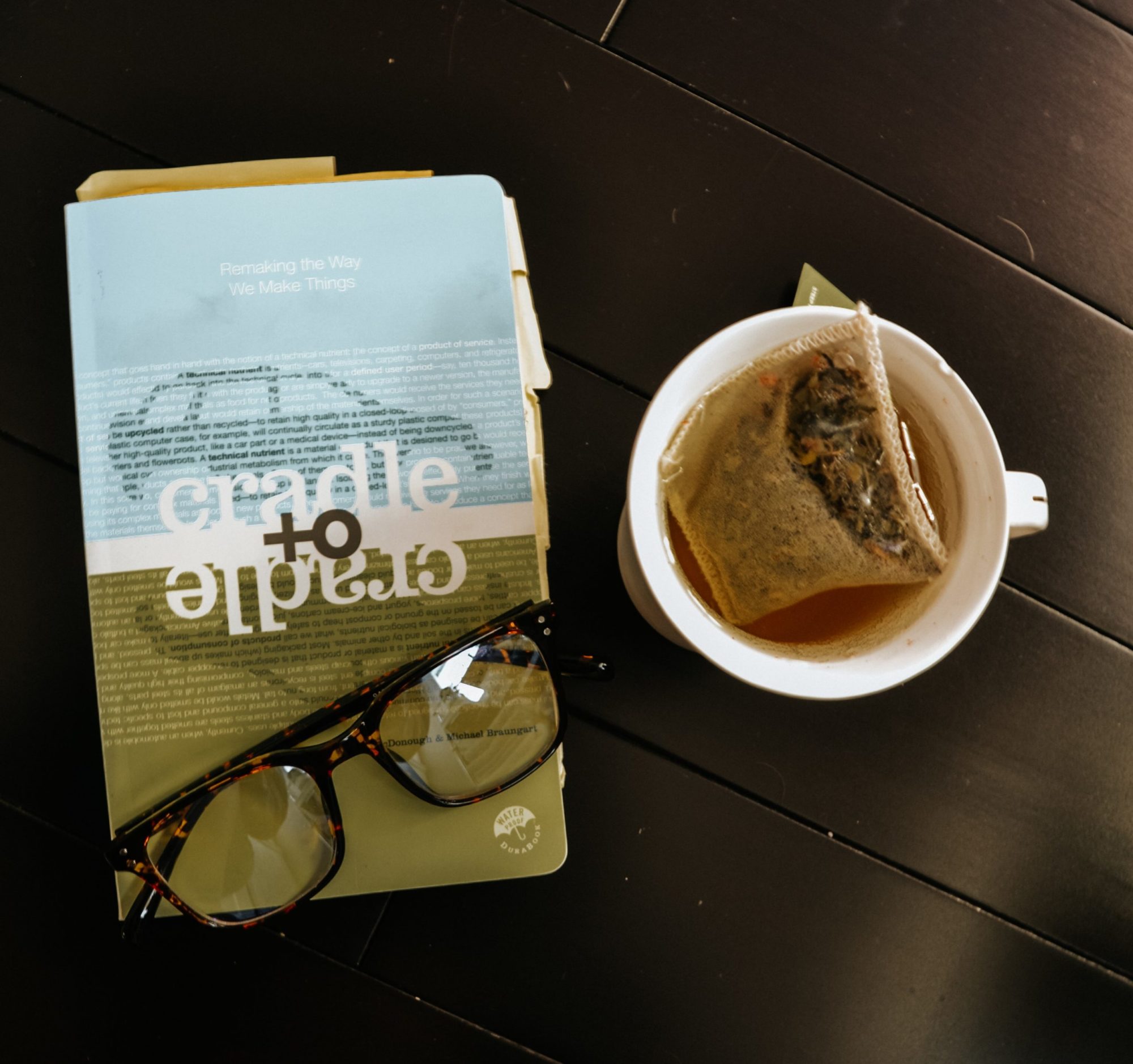This week, I continued reading Cradle to Cradle: Remaking the Way We Make Things by William McDonough and Michael Braungart. This chapter, “Why Being ‘Less Bad’ Is No Good,” argues that eco-efficiency delays environmental issues rather than solving them.
What is eco-efficiency?
The United Nations Economic and Social Commission for Asia and the Pacific (ESCAP) says that eco-efficiency “focuses on practices of resource-use attaining economic and environmental progress through more efficient uses of resources and lower pollution.” McDonough and Braungart define the term similarly: “doing more with less” (page 51). Eco-efficiency emerged as industry’s response to the concerns of environmentalists and writers like Thomas Malthus, John Muir, Rachel Carson and many others. While environmentalists sounded the alarm for decades, it took until the 1990s for businesses to begin to take notice of their environmental impact. Businesses like 3M and DuPont are serious about pollution-prevention projects and cutting their emissions. Often, this takes the form of waste reduction, regulation, waste reuse and recycling.
McDonough and Braungart argue that most recycling is actually downcycling–“it reduces the quality of a material over time” (page 56). Downcycling results in lower-quality products and can increase biosphere contamination. Often, these recycled products contain toxins, because the original product was not designed to be recycled. Furthermore, recycling is expensive and energy-intensive.
But isn’t efficiency good?
While eco-efficiency delays immediate negative effects of business and industry, it’s not a permanent solution. In fact, the authors argue that “a regulation is a signal of design failure” (page 61). While eco-efficient buildings and products may reduce waste and use less energy, they may also be less safe to use and less durable. With efficiency comes tradeoffs, and often these tradeoffs result in a delay to environmental destruction rather than a solution.
The difference between better and best
McDonough and Braungart continue to argue for a self-sustaining environmental approach. They envision a system where environmental practices are incentivized rather than required by regulation. Instead of ‘better’ eco-efficient options, they advocate for ‘best’ options which won’t require environmental destruction in the first place.
In other environmental news, the Environmental Protection Agency decided to suspend enforcement of environmental regulations due to the COVID-19 pandemic. Read more here.
*****
Read last week’s post on the limited lifetime of the products we use.
- College Football, Ariana Grande, and Water - September 3, 2023
- Livestock and Land Use: How Are We Feeding The Planet? Impactfull April 2022 - April 19, 2022
- What Does Voluntourism Look Like? A Case Study in a Cambodian Orphanage - March 28, 2022
